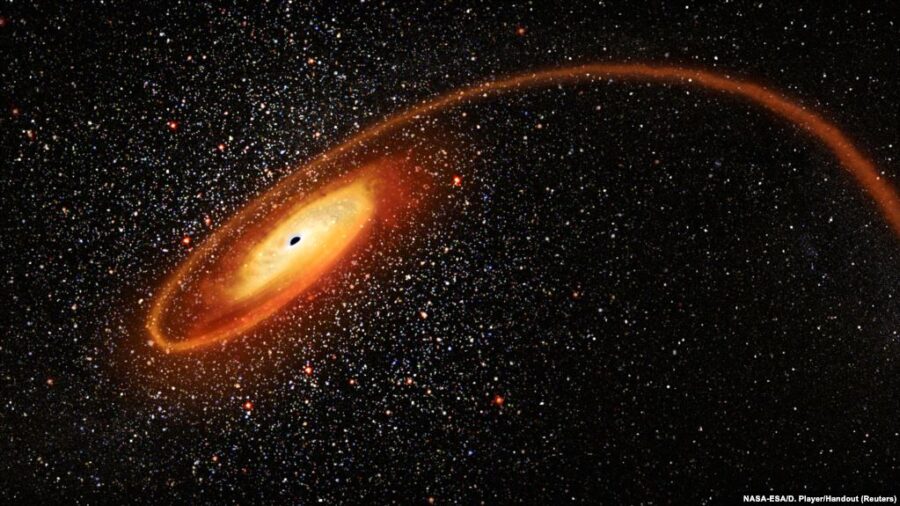

1.gargantuan (adj)
very large
2. collated (v)
to bring together different pieces of information in order to study and compare them
3. landmark (n)
an important stage in something’s development
4. array (n)
a large group of things or people, especially one that is attractive or causes admiration or has been positioned in a particular way
5. captured (v)
to represent or describe something very accurately using words or images
6. feat (n)
something difficult needing a lot of skill, strength, courage, etc. to achieve it
7. scanned (v)
to look at something carefully, with the eyes or with a machine, in order to get information
Black Holes

Astronomers have taken the first ever photograph of a black hole. It is located in a far, distant galaxy called M87, which is 500 million trillion km from Earth. That gargantuan number is a five followed by twenty zeroes. Scientists estimate the black hole to have a diameter of 40 billion km and to be three million times larger than our planet. Lead astronomer Professor Heino Falcke spoke to the BBC about the black hole. He said: “What we see is larger than the size of our entire Solar System. It has a mass 6.5 billion times that of the Sun. And it is one of the heaviest black holes that we think exists. It is an absolute monster – the heavyweight champion of black holes in the Universe.”
The image of the black hole was captured by an array of eight linked telescopes called the Event Horizon Telescope (EHT). No single telescope exists that is powerful enough to capture the image. Each of the EHT telescopes is located high up on volcanoes in Hawaii and Mexico, mountains in the USA and Spain, a desert in Chile, and in Antarctica. A team of 200 scientists pointed the networked telescopes towards the M87 galaxy and scanned it over a period of 10 days. The data they gathered was stored on hundreds of hard drives. It was then collated and processed to produce the image that is now a landmark in space exploration. Professor Sheperd Doeleman called it “an extraordinary scientific feat”.
Resource:https://breakingnewsenglish.com/1904/190413-black-hole.html

- What is the galaxy called in which the black hole is located?
- How far is the black hole from Earth?
- What part of the black hole is 40 billion km?
- What is the black hole 6.5 billion times larger than?
- What kind of champion did an astronomer call the black hole?
Sometimes I wonder if my heart is like a black hole--it's so dense that there's no room for light, but that doesn't mean it can't still suck me in.
Jasmine Warga

 Advanced
Advanced




